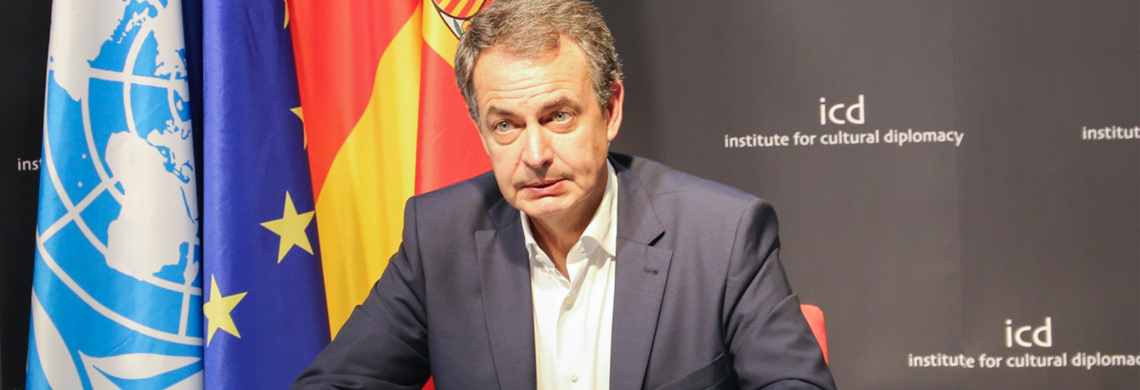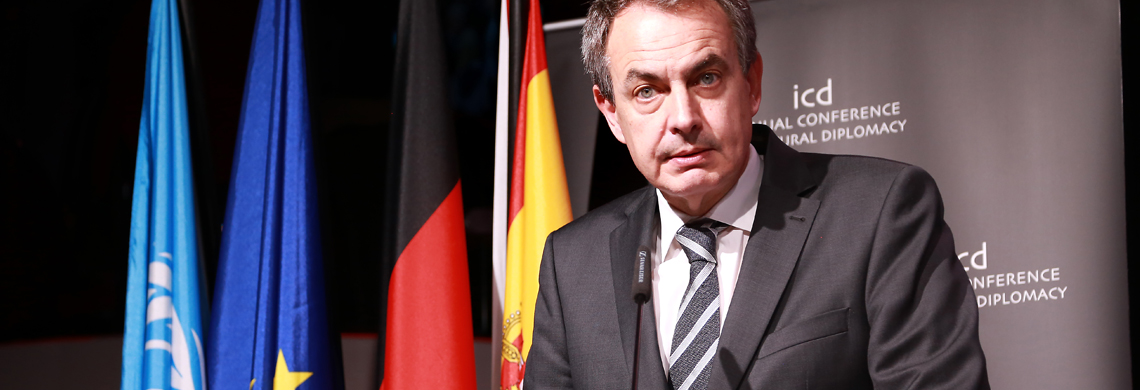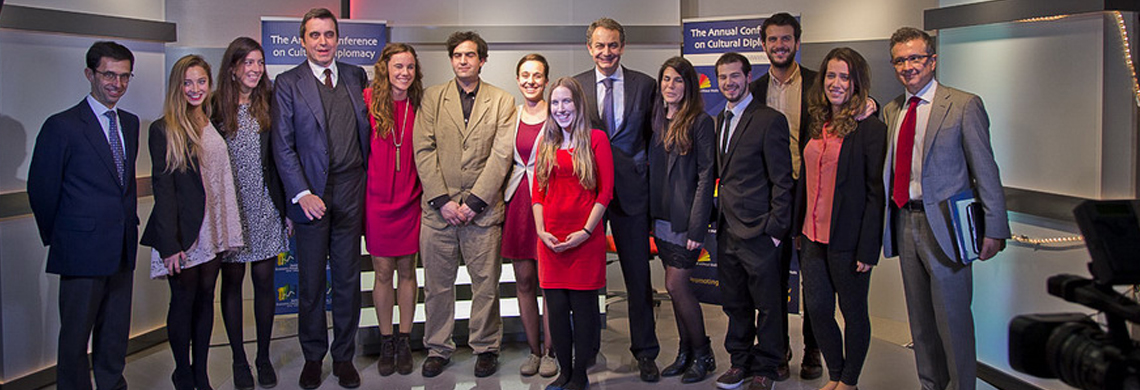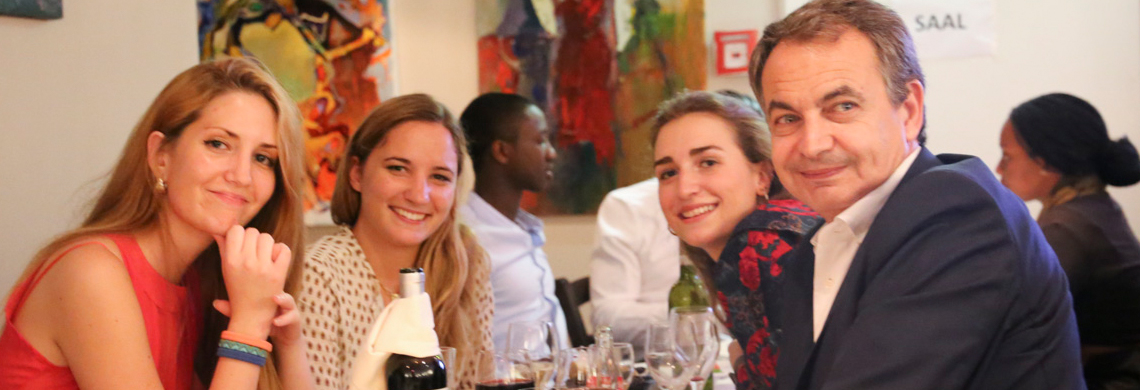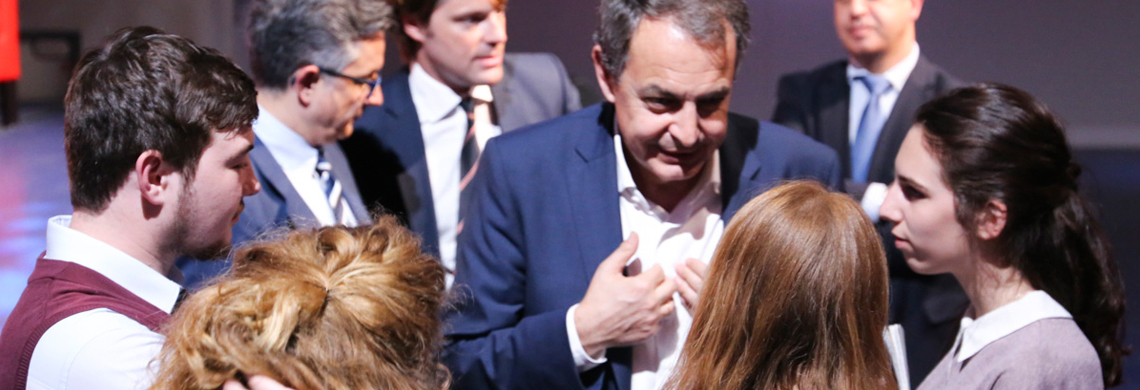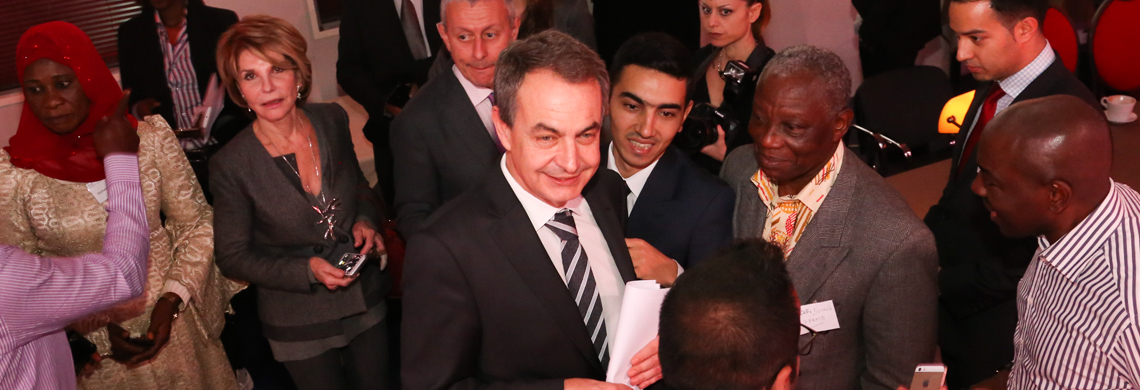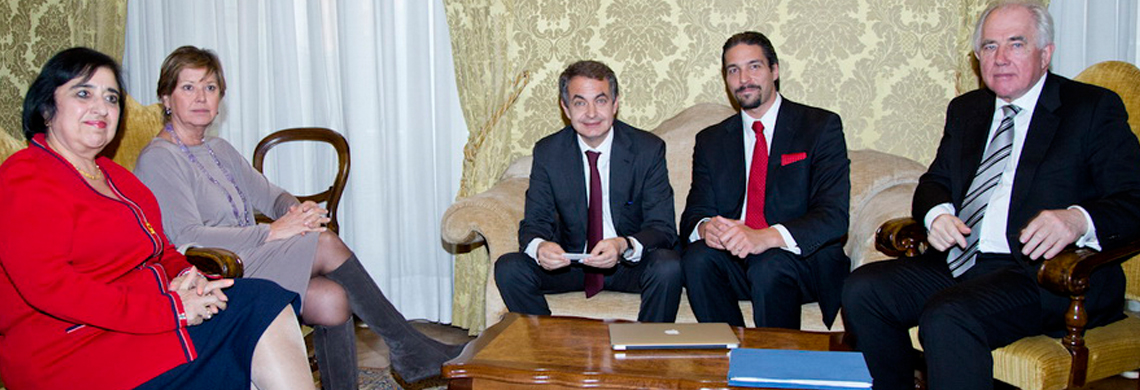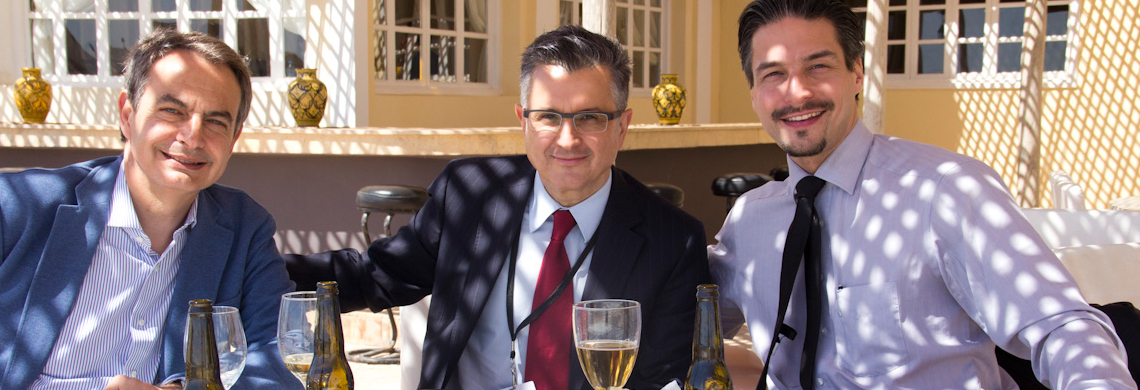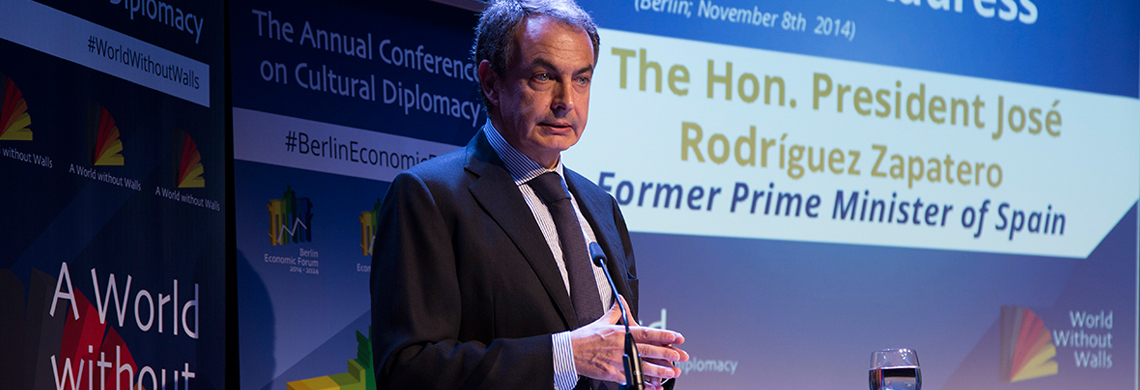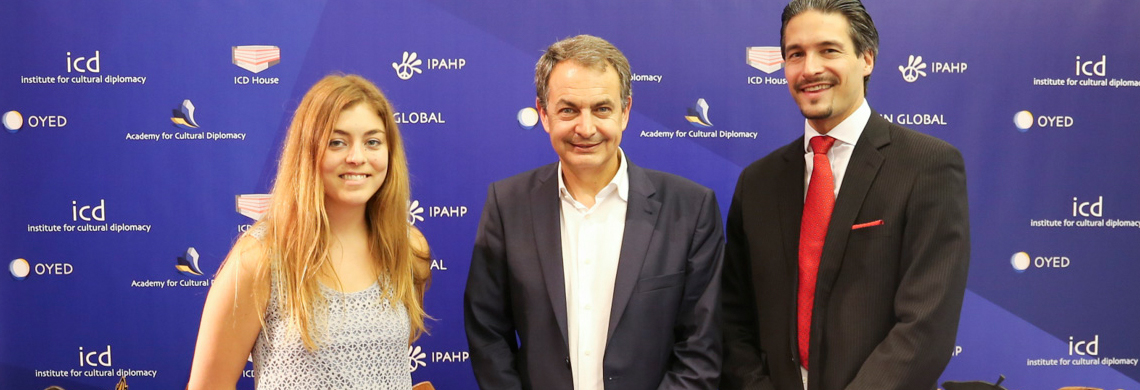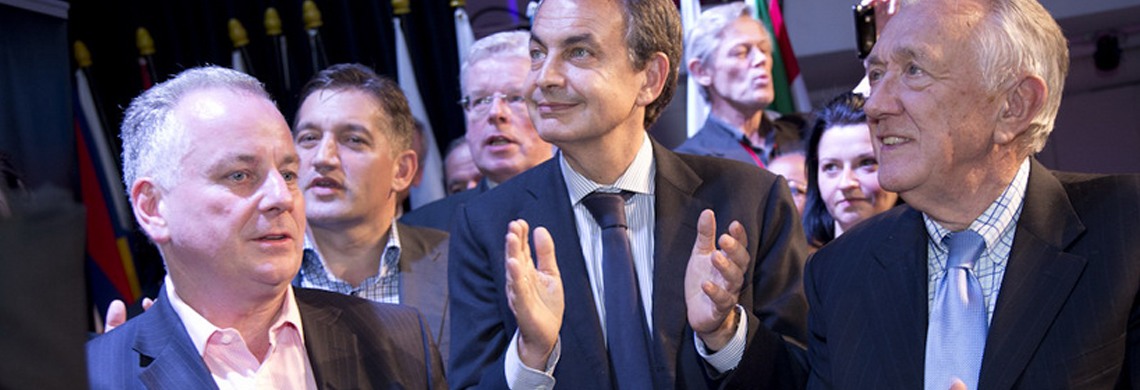News
Zapatero Takes Part in "Dialogue about Cuba" Event in Madrid
October 22nd, 2015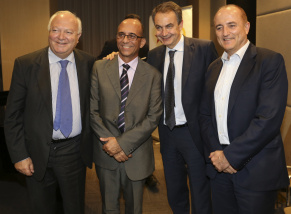
On October 20th the ICD organized an event called “Dialogue about Cuba” at the Hotel AC Cuzco in Madrid. The aim of the event was to discuss the new situation after the announcement of the thaw in relations between Cuba and North America on the 17th December 2014 and the new perspectives for both the Southern hemisphere and in Europe. This new situation led to many logistical questions such as how will the embargo be lifted; how long will the process take; and what role will Spain and the EU play in this process. Representatives from both Cuba and the USA, as well as members of the European public and private sectors took part in the conference.
José Luis Rodríguez Zapatero, President of the Advisory Board of the Institute for Cultural Diplomacy and former Prime Minister of Spain, started the round of welcome speeches. Zapatero stressed the historic importance of the agreement and the benefits it will create regarding the cooperation between North and South America. He praised the American decision of removing Cuba from the list of countries supporting terrorist groups and he manifested confidence in a process which will guarantee social cohesion, equity and progress for the island.
Miguel Ángel Moratinos, former Foreign Minister in Zapatero’s government named the agreement the “greatest news for the diplomatic community since the end of the apartheid”. He highlighted Pope Francis’ role in the negotiations and he stated that dialogue and cooperation were the main instruments used during his time in office in order to advance the resolution of the conflict.
Eugenio Martínez Enríquez, Ambassador of Cuba to Spain, began his speech with a historic overview of Cuban politics, mentioning the limited sovereignty of the country before the revolution. Nevertheless he expressed his satisfaction with the fact that both Chief of States and Senior Officers of the two countries have restarted communication. He also thanked European companies and the Spanish population in particular, for their support even during the most difficult moments.
Kris Urs, Minister-Counselor of the Embassy of the United States in Spain emphasized the importance of normalizing political and diplomatic relations. He observed that the process is in its first steps and that it will be complex but nonetheless there have already been important achievements, like the modification of regulations regarding touristic visits to the island and the cooperation on security, migration and other issues.
Juan Costa Climent, former Minister of Science & Technology of Spain, came in representation of Ernst & Young. Costa took up a stance in favour of dialogue between the USA and Cuba to boost cohesion in the American continent, and as a consequence to create value for the private sector, by taking advantage of the big human potential and the abundance of natural resources.
The first panel discussion of the day, moderated by diplomat Carlos Alonso Zaldívar, made an analysis of the political rapprochement between Cuba and North America. The speakers discussed the new political agenda and how to progress towards the end of the embargo. The session Economic reforms and investment perspectives in Cuba was moderated by journalist Joaquín Estefanía. Topics regarding the new Economic perspectives were discussed, like the New Law of Foreign Investment, the Special Economic Interest Area of El Mariel, or the cooperative agreement between the EU and Cuba. The experts made predictions about the development of the agricultural sector, tourism sector, infrastructures and the technological sector in Cuba. Economist José Carlos Díez moderated the panel about sustainability, innovation and cooperation in Latin America. Experts in the field discussed how to make progress in a sustainable way, counting on innovation, paying attention to the requirements regarding the fight against climate change, and taking advantage of cooperative programs. They examined the challenges that Latin America has to face and, in general, those challenges facing developing countries. The last panel of the evening was titled Spain and Cuba: a story with a future and it was moderated by the Spanish writer Marifé Santiago. Representatives from both the Spanish and Cuban cultural sector discussed the impact of the Law in Historical Memory, the importance of shared culture and the cooperation in the fields of education, technology and sustainable development. The conference concluded with a piano concert performed by the Cuban musician José Maria Vitier, who played some well-known classics from the Cuban repertoire, as well as his own compositions.





